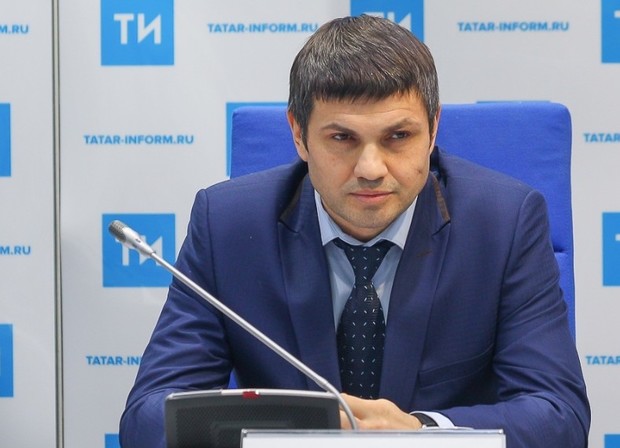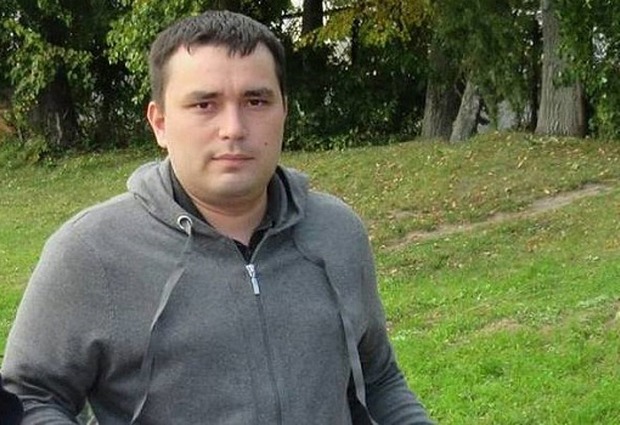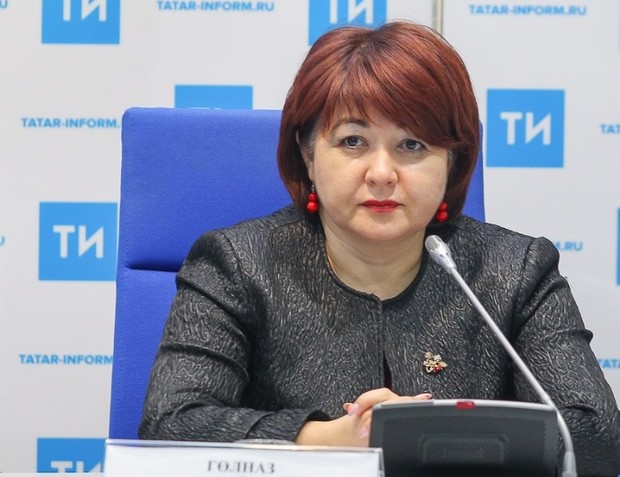Danis Shakirov: ‘If a person calls himself a Tatar, knowledge of the Tatar language is a must’
A representative of the World Congress of the Tatars scolded Kazan journalists for awkward questions about compatriots living abroad
The World Congress of the Tatars reported on its tireless activity to journalists. However, the journalists were not satisfied with the information about the held forums. The correspondent of Realnoe Vremya tried to figure out whether the Congress helped 'Tver prisoner' Shamil Kazakov and whether it is possible not to speak the Tatar language and to stay a Tatar. As it turned out, the privilege to forget the mother tongue is only given to those who more than 300 years lived abroad.
Forum for Tatar entrepreneurs
In order for a reader to gain a better understanding of the World Congress of the Tatars and its duties, here is a list of the events the organization held in 2016. Deputy Chairperson of the Executive Committee of the World Congress of the Tatars Danis Shakirov (photo on the poster) explained that in December of each year they hold an expanded meeting, which is attended by the representatives of the Congress from different regions of Russia and abroad. At the meetings, they approve an action plan for the next year. In 2016, they have held the forum The History of the Tatar regions, the forum of Tatar rural entrepreneurs, the forum of Tatar imams, the forum of Tatar women, the forum of Tatar youth.
Another event that was announced at the press-conference, XI Business partners of Tatarstan forum. It is planned that it will be held from 7 to 9 December and will be attended by 700 businessmen from 66 regions of Russia and 28 foreign countries. The event will run five discussion forums, where they will discuss the issues of construction, business support, agriculture, tourism, IT. It is noteworthy the aide to the president on economic issues Ranel Zinnatullin told about the activities of businessmen in the Russian language, as he admitted, most of his life he has lived in Khabarovsk and has forgotten a little his native language.

They said nothing about Shamil Kazakov, a Tatar from Tver
Undoubtedly, the organisation of various forums and events is a very useful activity. But journalists have questioned whether the World Congress of the Tatars will turn into 'a philharmonia', which activity is to organize concerts and Sabantuy (a Bashkir, Idel-Uralian and Tatar summer festival – editor's note). Just for the last time, there have been a lot of high-profile events related to the life of the Tatars. But it seems the Congress of the Tatars in no hurry to respond to them publicly. In particular, they talked about the idea of drafting a law on the Russian nation, as well as about the address of an Orthodox Tatar Dinara Bukharova to American President Donald Trump, in which she calls the Tatars an integral part of the Russian nation. The response of Danis Shakirov was full of words and expressions, which the Soviet officials loved to use – 'sitting', 'bureau', 'protocol'.
'If you go to the Congress website and see what events and projects have been organized, you will realize how much events of the world scale the Congress of the Tatars holds. All the issues you have mentioned are considered at the meeting of the bureau. Every month we discuss issues with the members of the bureau, we send the protocols to the relevant government authorities, find the answers to all the questions. We conduct such activities,' said Danis Shakirov.
Our correspondent wondered whether the World Congress of the Tatars gives a helping hand to the compatriots living outside the Republic. As an example, we cited the case of Shamil Kazakov, who was not accepted to work in the administration of the Ministry of Internal Affairs in the Tver Oblast because of the unspoken 'not to take people from the Caucasus'. And then Kazakov was almost accused of inciting hatred against 'social group of interior ministry officials'.
'Each situation must be considered individually. We have appealed to the Tatar organization in the Tver Oblast. Today in law enforcement bodies, in the ministries, the Tatars do work, there are even dynasties. This is the individual case and what this man speaks on behalf of the Tatars and the fact that he turned out to be in such situation is connected with the peculiarities of his nature, not because he is an ethnic Tatar. We went to the local government and the Ministry of Internal Affairs. Today, he is accused of nothing,' said Danis Shakirov thus throwing the responsibility on Shamil Kazakov himself.

To forget the language for 350 years
The discussion also centred on the Tatars living outside of Tatarstan and Russia. As the head of information-analytical department of Executive Committee of the World Congress of the Tatars Gulnaz Shaikhieva told, a great discovery for her was the existence of the Tatar villages in Poland. They are two: Bogoniki and Krushyniany. These villages were founded about 350 years ago. Now, however, there are not many Tatar families left. In one village there are five families, in the other, four. Despite this, Bogoniki and Krushyniany are considered to be Tatar villages. Polish Tatars have already forgotten their native language but have retained the religion and Tatar traditions and even opened a restaurant in Krushenyany Tatar Yurt, which serves Tatar cuisine.
By the way, we found on the Internet a short film about the history of Krushenyan that started in 1679. The Polish Tatars claim that their history started even earlier, in the XIV century, after the victory over the crusaders near Grunwald. Besides, on the Internet there is a picture of the Tatar Yurt, which was described by Shaikhieva. As it turned out, the place is very popular among tourists. But the dishes represented here are different from those to which we are accustomed. For example, they serve perekochevniki, a meat loaf resembling a Tatar urama.
As a caretaker of the mosque in the village of Krushyniany Dzhemen Kambitski tells in the film, after the war there were 100 Tatars. Now there are only about four families: all the rest moved to the city. As we have already noted, they do not speak the Tatar language. In this regard, we recalled the statement of Deputy Minister of Culture of Tatarstan Guzel Sharipova that in order to be a Tatar it is not necessary to speak the Tatar language, and asked Gulnaz Shaikhieva whether she agrees with this statement or not.
'The Tatar language is the language of their mother. I believe that the native language everyone should know. But the Polish Tatars have been living there for 600 years. They have recently opened Sunday schools, where they study the Tatar language. But I think that not only the Tatars but also the representatives of other nationalities should know their native language.'
'We say that an ethnic feature of the Tatars, of course, is the preservation, development and study of the Tatar language. But if a person calls himself a Tatar, knowledge of the Tatar language is a must,' said Danis Shakirov.

Speaking about the Tatars living abroad, we will add that Robert Minnullin has recently said that the fate of the Tatar nation is determined in the first place by the Tatars living in Tatarstan, Bashkortostan and in other Russian regions but not by those who live abroad, wearing national costume and periodically demonstrates their ability to bake triangles.
'If 75% of Tatars live outside the Republic, we as the World Congress of the Tatars can't help them, it would be wrong,' responded Danis Shakirov and added that Tatarstan also conduct active work, which is supervised by President of Tatarstan Rustam Minnikhanov as well.
The journalists retorted that a meeting with the representatives of Tatar diasporas boils down to the fact that they sing to Rustam Minnikhanov the song Tugan tel, but they can't speak their native language.
'Try to live for 600 years in a foreign land. In this case, I do not blame them,' Gulnaz Shaikhieva did not agree.
In the end, her colleague Danis Shakirov even questioned if the Tatar journalists were really worried for their nation as the foreign Tatars do. In his opinion, they may incorrectly perceive the information, focusing only on what they see on television.